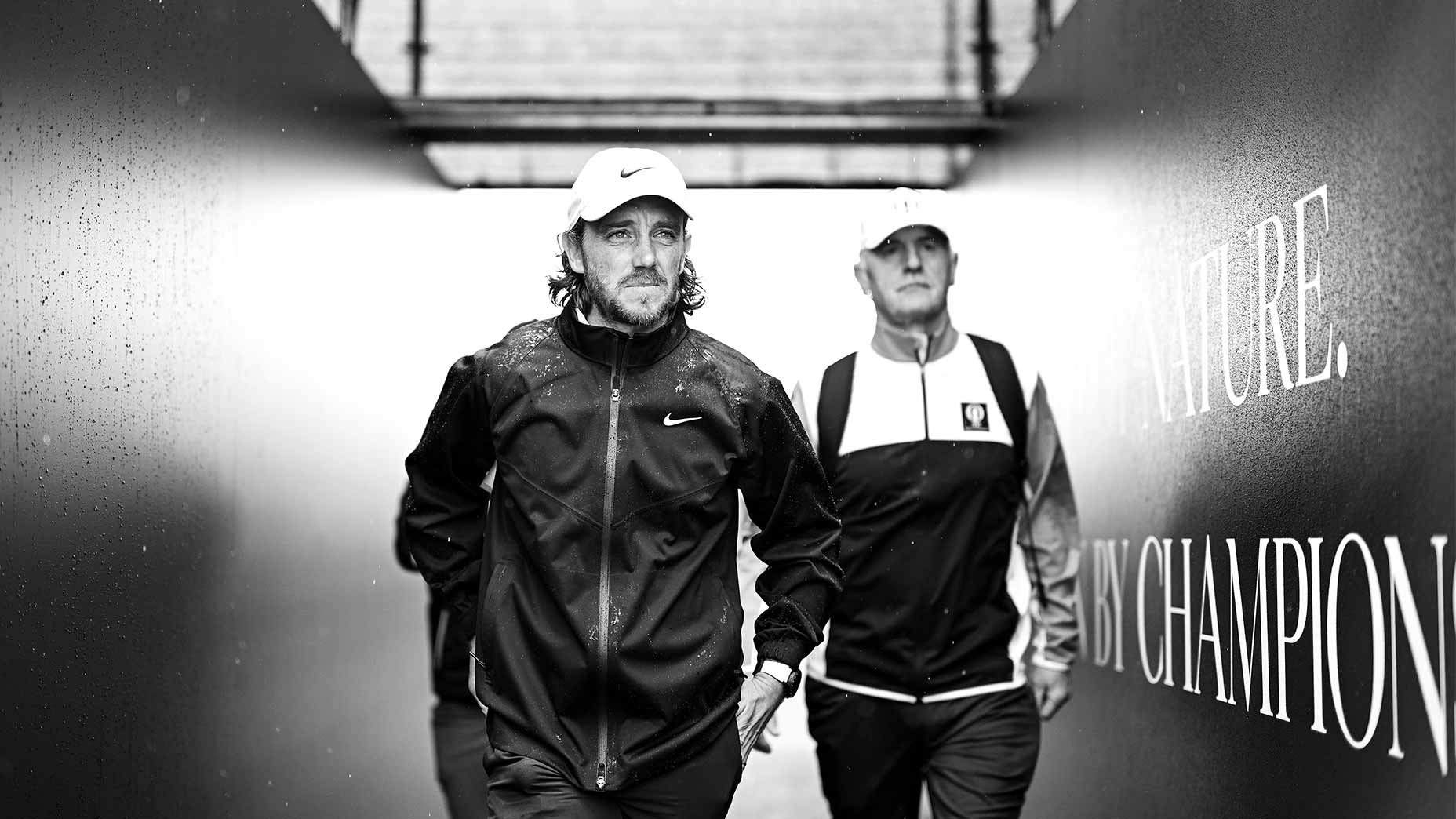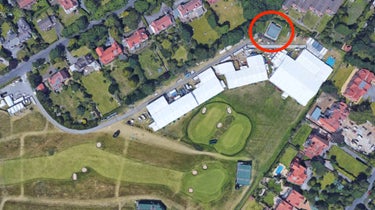
Tommy Fleetwood could become an Open Championship hero this week.
Getty Images
HOYLAKE, England — You don’t need the betting lines to know Tommy Fleetwood is one of the Open Championship favorites.
On Wednesday, you needed only a few minutes along the rope line.
“Tommy!” the fans, among the largest galleries for any player, hollered at him, desperate for an autograph.
On a handful of occasions, he obliged them, but there was a slightly more important job to do between the ropes, where he and Tyrrell Hatton were playing a practice round together. The crowd didn’t seem to realize.
“Tommy, please!”
Fleetwood was born in Southport, another seaside golf town just a short drive north of this week’s festivities. Though that technically makes another Open Championship host (Royal Birkdale) his true home course, neither he nor the people of Royal Liverpool seem to mind calling this one a home game for Tommy boy.
“Yeah, I’ve imagined it about a million times probably,” Fleetwood, his eyes wide, said Wednesday from the press room at Royal Liverpool. “Winning the Open is a huge, huge dream. No matter where that is, that’s always something I’ve visualized and always thought about. Having the opportunity to do it so close to where you grew up is something that’s very unique and very special.”
Fleetwood is just the latest hometown hero to find himself in the center of the major championship spotlight. Logic tells us he enters the week with a home-field advantage at Royal Liverpool, where he and his caddie, Ian Finnis, are both fairly regular players. The problem is that in the last several years, a handful of golfers have faced a similar set of circumstances, and nearly all have faced disaster in the days that followed.
It’s hard to say what it is about playing a so-called “home game” that seems to have an inverse effect on golfers. Perhaps some of it is the pressure that comes with crowds and excitement. Perhaps some of it is internally-applied expectations.
Rory McIlroy seemed to indicate it was a little bit of both in the aftermath of his infamous missed cut at Royal Portrush in 2019, where he fired 18 shots worse than his course-record score in an opening-round 79, leading to a soul-crushing missed cut.
“It’s been an eye-opener for me,” McIlroy said then. “Sometimes you’re so far away and you forget about all the people that are cheering you on back home. And then you come and play in front of them, it definitely hit me like a ton of bricks today.”
Same went for Los Angeles native Max Homa after his missed the cut at the U.S. Open in his hometown just last month.
“Incredibly disappointing round,” Homa posted on Instagram. “That one hurt a lot.”
Fleetwood himself has been a victim of the burden of expectation before. He played in front deeply supportive crowds as an ascending star at Royal Liverpool in 2014 and Royal Birkdale in 2017, where he finished T27.
“Arriving at the Open was strange,” he said in ’17. “Birkdale was the first Open I had been to as a 7 year old, and now I was the face of it.”
He finds himself again the face of the action at Hoylake this week, where both the pressure and the attention are high. But Fleetwood isn’t dreading those emotions — this time, he’s embracing them.
“I think when it’s an event that is so close to home, obviously it comes with its own mental challenges, with your own expectations, and with everybody else’s,” he said. “But it would be silly and daft to look at or try and find negative elements to do with that. It’s an amazing feeling playing in front of so much support and having that, and I think it’s very special.”
It helps too that Fleetwood isn’t the only hometown favorite this week. Matthew Jordan, a member at Royal Liverpool, earned his way into the field through Open Championship qualifying. He will have a voluble flock among the Hoylake faithful, perhaps even as loud as Fleetwood’s.
If course knowledge were the only factor in deciding a tournament champion, Jordan would be the runaway favorite. But as both he and Fleetwood well know, the only advantage that matters once the balls are in the air is shots taken.
“Being at your home course, it doesn’t always follow,” Fleetwood said. “You know the course well, but that doesn’t mean loads.”
The rest, as they say, is all noise.










